November 2018 Events (BC-wide, Online)
Bookmark this post! It will be updated as more events are announced. You can also get frequent updates via our Twitter. Have a suggestion? Email us.
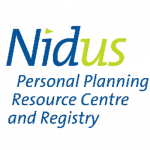 November 1 – 9 (various dates): Nidus presents a webinar and a presentation on The Planning Continuum — A Will is Not Enough! in Vancouver, Castlegar, Savona, and Terrace.
November 1 – 9 (various dates): Nidus presents a webinar and a presentation on The Planning Continuum — A Will is Not Enough! in Vancouver, Castlegar, Savona, and Terrace.
- Thursday, November 1 (7:00 – 8:30 pm) This webinar is also available for viewing at public libraries in Castlegar, Savona, and Terrace. See the poster with more information and registration info (PDF).
- Friday, Nov 9 (1:00 – 2:30 pm) This in-person presentation is at the South Granville Seniors Centre, 1420 W. 12th Ave. (at Hemlock St.), Vancouver. See the poster with presentations and registration information here (PDF).
- November 1 – 13 (various dates): Amici Curiae presents a debate and seminars at the Justice Education Society in downtown Vancouver (also accessible via webinar).
- Thursday, November 1 (5:30 – 7:00 pm) Access to Justice Debate 2018: The proposed LSBC paralegal plan will not substantially improve access to legal services. Facilitated by Dom Bautista, Executive Director, Amici Curiae Friendship Society.
- Tuesday, November 13 (5:30 – 7:00 pm) Human Rights Seminars 2018: Human Rights Law (ACHR 103). Facilitated by Lindsay Waddell, counsel, Moore Edgar Lyser.
 November 1 – 18 (various dates): Seniors First BC presents various workshops and a panel presentation in Coquitlam, Port Coquitlam, Delta, and Vancouver.
November 1 – 18 (various dates): Seniors First BC presents various workshops and a panel presentation in Coquitlam, Port Coquitlam, Delta, and Vancouver.
- Thursday, November 1 (10:00 am – 12:00 pm) Frauds and Scams Workshop – Dogwood Pavillion, Coquitlam.
- Monday, November 5 (1:30 – 3:00 pm) Bullying between Older Adults in Communal Settings Workshop – McKee Seniors Recreation Centre, Delta.
- Tuesday, November 13 (2:00 – 4:00 pm) Powers of Attorney, Joint Bank Accounts and Representation Agreements Workshop – Wilson Centre, Port Coquitlam.
- Sunday, November 18 (10:30 am – 12:00 pm) Panel Presentation: Enhancing Support for Older Adults with Mental Health Issues – BC’s Affordable Housing Conference, Sheraton Vancouver Wall Centre, Vancouver.
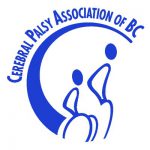 November 1 – 30 (various dates): Cerebral Palsy Association of BC presents an online auction and a workshop in Richmond.
November 1 – 30 (various dates): Cerebral Palsy Association of BC presents an online auction and a workshop in Richmond.
- November 1 – 30 2018 Online Auction – Every November, CPABC organizes an online auction to help raise much-needed funds for programs and services, while offering you a great chance to bid on incredible experiences, gift certificates and prize packages. Click here to start bidding.
- Friday, November 16 (3:45 – 6:00 pm) Mental Health in the Workplace: Rights and Responsibilities of Youth with Disabilities – Richmond Centre for Disability, Richmond.
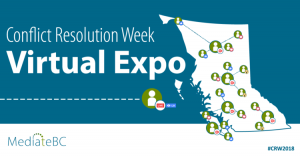 November 3 – 10 (various dates): Mediate BC presents Conflict Resolution Week for a workshop and presentations in Vancouver and New Westminster, as well as Facebook Live events.
November 3 – 10 (various dates): Mediate BC presents Conflict Resolution Week for a workshop and presentations in Vancouver and New Westminster, as well as Facebook Live events.
- Monday, November 5 (8:30 am – 12:00 pm) Conflict in Motion: Mind, Body and Heart – JIBC New Westminster Campus Theatre. For both experienced conflict practitioners and laypeople with an interest in conflict resolution. Free, register here.
- Monday, November 5 (7:00 – 8:00 pm) Happy Hallways Preventing and Resolving Neighbourhood Conflict – Chabad-Lubavitch, 5750 Oak Street, Vancouver. Join professional mediator Angela Stadel for a free workshop on preventing and resolving neighbourhood conflict. Free, register here.
- November 3 – 10 (various dates) Virtual Expo via Facebook. Mediators and Conflict Resolution Enthusiasts will be livestreaming FREE tips and advice on Facebook. Each broadcaster will share inspiring stories and provide valuable takeaways to help you better resolve conflicts in your own personal life. All with the goal of inspiring and equipping you to become your own personal conflict resolution champion. Check out the schedule here.
 November 3 – 30 (various dates): MOSAIC presents various workshops in Burnaby and Vancouver.
November 3 – 30 (various dates): MOSAIC presents various workshops in Burnaby and Vancouver.
- November 3, 17, 24 (4:00 – 6:00 pm) Moving Ahead: Citizenship Preparation 1, 2, 3 (Tigrinya) – MOSAIC Highgate, Burnaby.
- Wednesday & Thursday, November 7 & 8 (10:00 am – 1:00 pm) Canadian Citizenship Preparation – Vancouver Public Library (South Hill Branch), Vancouver.
- Friday, November 9 (9:30 am – 12:00 pm) Tenant’s Rights (Mandarin) – CCM Crystal Mall Level 2, Burnaby.
- Monday, November 19 (5:30 – 8:30 pm) Citizenship Preparation (English with Mandarin support) – Tommy Douglas Library, Burnaby.
- Tuesday, November 20 (1:00 – 3:00 pm) Moving Ahead: How to Apply for Citizenship (Dari/Farsi) – MOSAIC Highgate, Burnaby.
- Wednesday, November 21 (2:00 – 4:00 pm) Moving Ahead: Canadian Citizenship (Dari/Farsi) – MOSAIC Highgate, Burnaby.
- Friday, November 30 (10:00 am – 12:00 pm) Moving Ahead: Canadian Citizenship (Arabic) – MOSAIC Highgate, Burnaby.
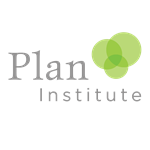 November 5 – 27 (various dates): Plan Institute presents information sessions and workshops by phone/computer and in Vancouver.
November 5 – 27 (various dates): Plan Institute presents information sessions and workshops by phone/computer and in Vancouver.
- Monday, November 5 (7:00 – 8:00 pm) or Monday, November 19 (10:00 – 11:00 am) Wills, Trusts, and Estate Planning Webinar. Cost: free as a limited time offer for BC residents living in rural communities outside of the Lower Mainland.
- Tuesday, November 6 (10:00 am – 12:00 pm) or Tuesday, November 27 (7:00 – 9:00 pm) Registered Disability Savings Plan (RDSP) – teleseminar by phone/computer. Cost: free.
- Thursday, November 8 (10:00 am – 12:00 pm) Wills, Trusts, and Estate Planning Workshop – Plan Institute Office, 312 Main Street, Vancouver. Cost: $65.00 per person or $90.00 for two.
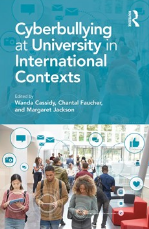 Tuesday, November 6 (4:30 – 6:30 pm): SFU Centre for Education, Law and Society (CELS) presents a book launch & discussion Cyberbullying at University in International Contexts at the Simon Fraser University, Burnaby campus.
Tuesday, November 6 (4:30 – 6:30 pm): SFU Centre for Education, Law and Society (CELS) presents a book launch & discussion Cyberbullying at University in International Contexts at the Simon Fraser University, Burnaby campus.
This book brings together cutting edge research from around the world to examine the issue of cyberbullying through a mutli-disciplinary lens, offering an array of approaches, interpretations, and solutions. This book is edited by Dr. Wanda Cassidy (Associate Professor and Associate Dean of Graduate Studies, Faculty of Education), Dr. Chantal Faucher (Post-doctoral Fellow, Centre for Education, Law & Society), and Dr. Margaret Jackson (Professor Emerita, School of Criminology) from Simon Fraser University, who have been researching cyberbullying among youth and young adults for many years. Free, register here.
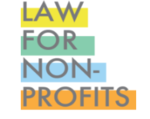
- November 7 – 16 (various dates): Law for Nonprofits presents a workshop in Vancouver (also available via webinar) and a Facebook Live event.
- Wednesday, November 7 (9:30 am – 1:00 pm) The New Societies Act: What You Need to Know workshop at the Alliance for Arts + Culture Boardroom in Vancouver (also available via webinar). General admission is $50 and live streaming/webinar is $20. City of Vancouver Bursaries available.
- Friday, November 16 (10:30 am – 12:00 pm) Q&A on the Transition via Facebook Live. Do you have any last questions before transitioning? We will be facebook live streaming to answer any final questions you have before the transition deadline on November 28, 2018. Please go to the Vantage Point’s Facebook to join in.
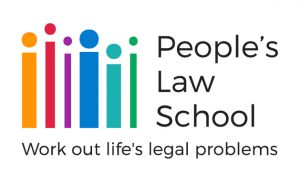 November 8 – 27 (various dates): People’s Law School presents free classes for the public in Burnaby and Port Moody.
November 8 – 27 (various dates): People’s Law School presents free classes for the public in Burnaby and Port Moody.
- Thursday, November 8 (7:00 – 8:30 pm) Wills and Estates – Burnaby Public Library – Tommy Douglas Branch.
- Tuesday, November 20 (7:00 – 8:30 pm) Probating a Will – Port Moody Library.
- Thursday, November 22 (7:00 – 8:30 pm) Representation Agreements: Planning for Incapacity – Burnaby Public Library – McGill Branch.
- Tuesday, November 27 (7:00 – 8:30 pm) Wills and Estates – Port Moody Library.
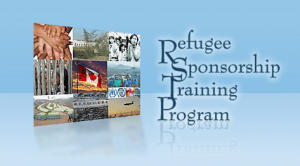 Saturday, November 10 (2:00 – 4:00 pm): Refugee Sponsorship Training Program (RSTP) presents a free clinic at MOSAIC, 5575 Boundary Road, Vancouver.
Saturday, November 10 (2:00 – 4:00 pm): Refugee Sponsorship Training Program (RSTP) presents a free clinic at MOSAIC, 5575 Boundary Road, Vancouver.
Come to the free clinic to meet with a lawyer who can provide information about the requirements of Canada’s Private Sponsorship of Refugees Program and help fill out and review sponsorship forms. RSVP by November 5. Get more information here (PDF).
 Tuesday, November 20 (6:00 to 9:00 pm): Society for Children and Youth of BC presents A Night for Rights at the Heritage Hall, 3102 Main Street, Vancouver.
Tuesday, November 20 (6:00 to 9:00 pm): Society for Children and Youth of BC presents A Night for Rights at the Heritage Hall, 3102 Main Street, Vancouver.
Please join the Society for Children and Youth of BC at our 2nd Annual “A Night for Rights” Celebration Fundraiser to support the advancement of rights for children and youth in BC. Speakers: Dr. Jennifer Charlesworth, Representative for Children and Youth of BC, and Meredith Graham, Spoken Word Artist and young person from care. Get your ticket here.
 Tuesday, November 20 (5:00 to 7:00 pm): UBC’s Peter A. Allard School of Law presents Professor Natasha Affolder’s inaugural lecture Contagious Environmental Lawmaking at the University of British Columbia, Vancouver.
Tuesday, November 20 (5:00 to 7:00 pm): UBC’s Peter A. Allard School of Law presents Professor Natasha Affolder’s inaugural lecture Contagious Environmental Lawmaking at the University of British Columbia, Vancouver.
This lecture explores the practice of spreading legal ideas. It elucidates the challenges in explaining why some legal developments go ‘viral’ and others fail to spread. And it reveals ‘the dark sides of virtue’ by prompting some uncomfortable questions about the role of legal scholars in spreading law and legal ideas. Natasha Affolder is Associate Dean Research and International and a Professor at the Allard School of Law. RSVP to eventassistant@allard.ubc.ca. This event qualifies for 1 CPD credit. DLA Piper Hall, Room 104. Get more information here (PDF).
 November 20 – 21 (various dates): Vantage Point presents two workshops in downtown Vancouver.
November 20 – 21 (various dates): Vantage Point presents two workshops in downtown Vancouver.
- Tuesday, November 20 (5:00 – 8:30 pm) Understanding the Societies Act II – Deep Dive into Legal Issues in Governance & Legislative Changes. Cost: Member- $95.00; Non-member- $110.00. City of Vancouver Bursaries available. 1183 Melville Street, Vancouver.
- Wednesday, November 21 (9:30 am – 12:00 pm) BC Societies Act: Recordkeeping and Privacy. Cost: $50. 1183 Melville Street, Vancouver.
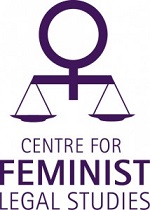 November 20 – 27 (various dates): UBC Centre for Feminist Legal Studies presents two lectures at the University of British Columbia, Vancouver.
November 20 – 27 (various dates): UBC Centre for Feminist Legal Studies presents two lectures at the University of British Columbia, Vancouver.
- Tuesday, November 20 (12:30 to 1:30 pm) “Unwelcome” Stereotypes and Gender Myths: Workplace Sexual Harassment Cases at the BC Human Rights Tribunal – Fasken Classroom, Rm 122.
- Tuesday, November 27 (12:30 to 1:30 pm) What Equality Means in Sentencing – Fasken Classroom, Rm 122.



